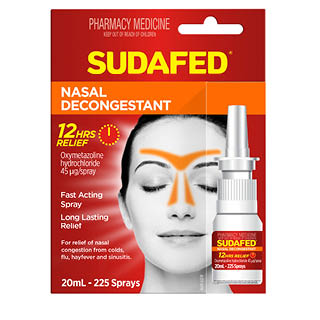
For anyone suffering from sinus problems, nasal decongestants are often prescribed to help them treat their symptoms
It is a common treatment for those who are suffering from sinus problems, but the use of this medicine is also being used by people who have sinusitis or allergy attacks.
As with any medication, it's important to discuss your concerns with your doctor before starting any type of treatment, especially one for sinus problems. Decongestants are not a cure. They are simply an attempt to help the patient deal with their symptoms. The main purpose of the medicine is to help you feel better so that you can get on with your life and enjoy it more.
Decongestants are generally prescribed as a short term treatment. If the decongestant doesn't work in a day or two, the doctor may give you a new one to try. Your doctor will discuss the possibility of you going back to your regular medication in six months. This is because most decongestants only provide symptomatic relief.
Because decongestants only provide temporary relief, long term use can cause some side effects such as dizziness or even loss of balance. Long-term use of decongestants can also reduce the effectiveness of over the counter decongestants, so it is important to consult with your doctor before taking any medication for sinus problems.
There are many different types of nasal decongestants available, so it is a good idea to do your research and find out which type works best for your needs. Some medications will work better for certain people. For example, decongestants may not work as well for babies because of their smaller airways.
Decongestants are also prescribed in case a person already has a severe case of sinusitis, or if they are allergic to the decongestant. These medications are usually taken twice a day, at least a half an hour before each meal, to help relieve the symptoms.
How decongestants work is that they help the airway relax and decrease swelling, making it easier for mucus to drain through your nose. They may also make you feel more relaxed and less likely to have an attack. an allergic reaction, which means that they can cause a slight burning sensation in your nose or throat if they are swallowed. if you experience an allergic reaction.
Because decongestants work so well for sinus symptoms, they are used in combination with other treatments to provide permanent relief for many people. They have a positive effect on people with other medical conditions, such as those with a flu allergy.
Decongestants are also used to treat patients with ปวดหัวข้างซ้าย iHealzy.com and insomnia, especially when combined with anticholinergics. If a patient needs to take a decongestant for more than two weeks, it is important to tell their doctor so that they can determine if you are at risk of developing an allergy.
Decongestants are generally non-addictive and non-addictive. However, if you stop taking them abruptly, or start taking them and then stop abruptly, your symptoms may return.
Decongestants can be very helpful for some people. They provide temporary relief for people with chronic sinus problems who cannot tolerate nasal sprays, or for people with chronic sinus infections when nasal sprays just don't work.
Decongestants can also be very effective for people with colds, especially for relieving sneezing and nasal congestion and sinus headaches. For people with sinus problems and colds, they can help speed up mucus drainage and reduce the severity of an attack.
When you start treatment with decongestants, you should report the possible side effects and also how often you should take them. Many people find over-the-counter decongestants to help reduce fever and cough during an attack. Some people experience dry mouth and throat after taking a decongestant.